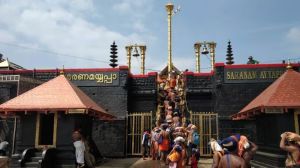Acid Test
Bollywood sessions musician Charanjit Singh,who is now credited with producing the first acid house record,on how life has changed for him since his album was rediscovered.
Bollywood sessions musician Charanjit Singh,who is now credited with producing the first acid house record,on how life has changed for him since his album was rediscovered.
There is nothing about Charanjit Singh,the producer of the cult album Synthesizing:10 Ragas to a Disco Beat 1982,that gives away the fact that he might be the father of acid house. The genre of electronic music is most known for the infamy it gained in the UK for its association with the then unknown,now ubiquitous party drug,Ecstasy. So much was the paranoia around the genre that it was banned from radio,TV and retail stores in the late 80s in Margaret Thatchers UK. Far from the images of warehouse raves that the squelching basslines defining acid house induce,Singhs house in Mumbai is modest. There are no analogue machines,no CDJs or Macbook pros that usually litter an electronic music producers home. Instead,on his dresser sits a photograph of his wife and him with Delhi chief minister Sheila Dikshit,taken a couple of years ago at a private ghazal concert that the couple sang at.
Yet,there was nothing remotely classical about his 1982 album. Singh reinterpreted 10 ragas,combining the hypnotic bassline of the Roland 808 drum machine with the signature squelchy bass of the Roland 303 bass synthesizer essential in all acid house music. The structure of the raga was kept intact with the Roland Jupiter-8 synthesizer. When I recorded the album at the HMV studio,all I wanted to do was something different. There was disco music at that time,and I thought it would be great to use it in ragas, says Singh,72.
The album flopped commercially,and was forgotten until Edo Bouman,owner of the label Bombay Connection,stumbled upon it in 2002. Singh says,Edo came to my place with a toota phoota record of my album and asked me if he could re-release it. Since its re-issue in 2010,there has been a cult following of the album and for good reason.
Its nearly impossible that the pioneers of acid house in Chicago such as Phuture had heard of Singhs album,but it is the impact of acid house on electronic music that makes it such a great discovery. Popular genres like trance,break beat and techno have all been influenced by it greatly. Singh,who worked with Bollywood composers like Shankar-Jaikishan,RD Burman and Laxmikant Pyarelal over two decades between the 1960s and 1980s,was,however,oblivious of this. In between his Bollywood assignments,he travelled the world playing ghazals and old Bollywood tunes to the Indian diaspora.
But things have changed drastically since the re-release. In the last two years,he has toured with 10 Ragas To A Disco Beat to 25 concerts,including Lowlands Festival in Holland,which attracts a crowd of over two lakh people,and the super exclusive club Berkhain,in Berlin. At the Magnetic Fields festival in Rajasthan next week,it will be the second time Singh plays to an Indian audience. Singh looks like he is still getting used to this new world he has been thrust into. They the audience are dancing all the time. Some of them close their eyes and do pranaam, he says. Singh is a man of few words and his amazement rings true.
The septuagenarian has a gleam in his eye while talking of his years in Bollywood he talks of strumming the Hawaiian guitar in Hai hai yeh majboori from the film Roti,Kapda Aur Makaan,or playing the keyboards in An Evening in Paris. Every time I went abroad,I would look for new instruments. People in the industry knew this. Music arrangers would keep eight to 16 bars open to see what I could do with it, he says.
The irony of his life is not lost on him or his wife. If his once failed album was not found,Singh would be just another musician who played in Bollywood and got lost in the annals of time. His wife Suparna says,The film industry can really kill your spirit. But he hasnt let anything affect him,just gone about his work. I know it is because of this album that my husband will be remembered.
- 01
- 02
- 03
- 04
- 05































